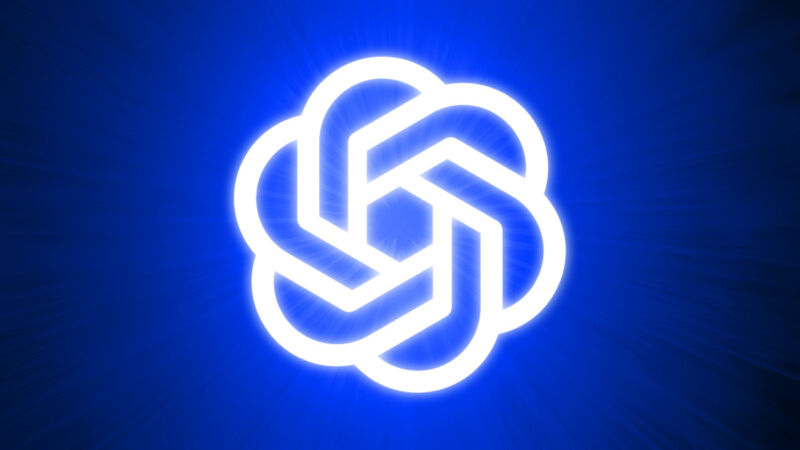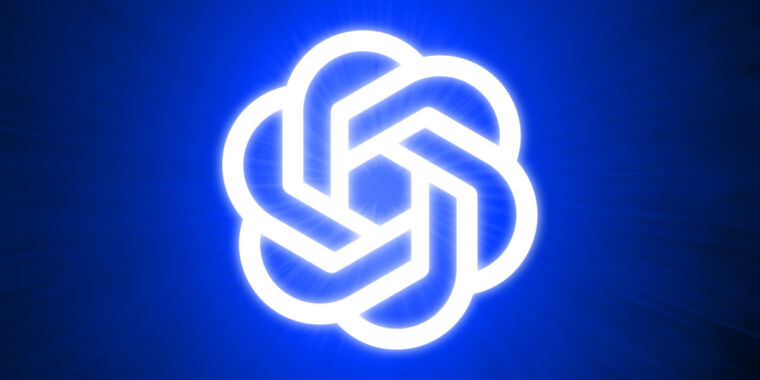
Benj Edwards
On Monday, OpenAI kicked off its annual DevDay event in San Francisco, unveiling four major API updates for developers that integrate the company’s AI models into their products. Unlike last year’s single-location event featuring a keynote by CEO Sam Altman, DevDay 2024 is more than just one day, adopting a global approach with additional events planned for London on October 30 and Singapore on November 21.
The San Francisco event, which was invitation-only and closed to press, featured on-stage speakers going through technical presentations. Perhaps the most notable new API feature is the Realtime API, now in public beta, which supports speech-to-speech conversations using six preset voices and enables developers to build features very similar to ChatGPT’s Advanced Voice Mode (AVM) into their applications.
OpenAI says that the Realtime API streamlines the process of creating voice assistants. Previously, developers had to use multiple models for speech recognition, text processing, and text-to-speech conversion. Now, they can handle the entire process with a single API call.
The company plans to add audio input and output capabilities to its Chat Completions API in the next few weeks, allowing developers to input text or audio and receive responses in either format.
Two new options for cheaper inference
OpenAI also announced two features that may help developers balance performance and cost when making AI applications. “Model distillation” offers a way for developers to fine-tune (customize) smaller, cheaper models like GPT-4o mini using outputs from more advanced models such as GPT-4o and o1-preview. This potentially allows developers to get more relevant and accurate outputs while running the cheaper model.
Also, OpenAI announced “prompt caching,” a feature similar to one introduced by Anthropic for its Claude API in August. It speeds up inference (the AI model generating outputs) by remembering frequently used prompts (input tokens). Along the way, the feature provides a 50 percent discount on input tokens and faster processing times by reusing recently seen input tokens.
And last but not least, the company expanded its fine-tuning capabilities to include images (what it calls “vision fine-tuning”), allowing developers to customize GPT-4o by feeding it both custom images and text. Basically, developers can teach the multimodal version of GPT-4o to visually recognize certain things. OpenAI says the new feature opens up possibilities for improved visual search functionality, more accurate object detection for autonomous vehicles, and possibly enhanced medical image analysis.
Where’s the Sam Altman keynote?

Getty Images
Unlike last year, DevDay isn’t being streamed live, though OpenAI plans to post video content later on its YouTube channel. The event’s programming includes breakout sessions, community spotlights, and demos. But the biggest change since last year is the lack of a keynote appearance from the company’s CEO. This year, the keynote was handled by the OpenAI product team, according to a representative of OpenAI that spoke to Ars Technica.
On last year’s inaugural DevDay, November 6, 2023, OpenAI CEO Sam Altman delivered a Steve Jobs-style live keynote to assembled developers, OpenAI employees, and press. During his presentation, Microsoft CEO Satya Nadella made a surprise appearance, talking up the partnership between the companies.
Eleven days later, the OpenAI board fired Altman, triggering a week of turmoil that resulted in Altman’s return as CEO and a new board of directors. Just after the firing, Kara Swisher relayed insider sources that said Altman’s DevDay keynote and the introduction of the GPT store had been a precipitating factor in the firing (though not the key factor), due to some internal disagreements over the company’s more consumer-like direction since the launch of ChatGPT.
With that history in mind, perhaps the company decided it was best to let Altman step away from the stage and let OpenAI’s technology become the key focus of the event instead of him. We are purely speculating on that point, but OpenAI has certainly experienced its share of drama over the past month, so it may have been a prudent decision.
Despite the lack of a keynote, Altman is present at Dev Day San Francisco today and is scheduled to do a closing “fireside chat” at the end (which has not yet happened as of this writing), according to an OpenAI spokesperson that spoke to Ars Technica. Also, Altman made a statement about DevDay on X, noting that since last year’s DevDay, OpenAI had seen some dramatic changes (literally):
From last devday to this one:
*98% decrease in cost per token from GPT-4 to 4o mini
*50x increase in token volume across our systems
*excellent model intelligence progress
*(and a little bit of drama along the way)
In a follow-up tweet delivered in his trademark lowercase, Altman shared a forward-looking message that referenced the company’s quest for human-level AI, often called AGI: “excited to make even more progress from this devday to the next one,” he wrote. “the path to agi has never felt more clear.”

